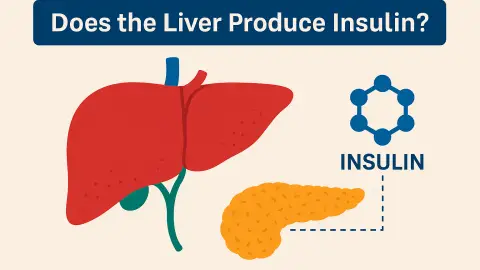Understand the role of insulin therapy in controlling blood sugar levels in people with type 2 diabetes. Learn about the benefits, administration, and possible side effects of insulin therapy and how it can be combined with other treatments.
Type 2 diabetes is a chronic condition characterized by high blood sugar levels, which can lead to serious health problems over time. Insulin therapy is a crucial aspect of managing blood sugar levels for people with type 2 diabetes. It can help improve glucose control, lower the risk of long-term complications, and improve the overall quality of life.
About us
InsulinIS.com is indeed a new insulin research company, it may be worth keeping an eye on their developments and innovations in the field. The insulin research sector is an important area of focus for many pharmaceutical companies and academic institutions, and new players in the field may bring fresh ideas and perspectives to the table.
Understanding Insulin and its Function
Insulin is a hormone produced by the pancreas that regulates the amount of glucose in the blood. When we eat, our body breaks down food into glucose, which is then absorbed into the bloodstream. Insulin helps move glucose from the blood into the cells, where it can be used for energy. In type 2 diabetes, the body is unable to effectively use insulin, leading to high blood sugar levels.
Overview
| Step | Description |
|---|---|
| 1. Prescription of Insulin Therapy | A healthcare provider will prescribe insulin therapy based on individual needs, glucose levels, and other factors such as age, weight, and overall health. |
| 2. Determining Dosage and Timing | The healthcare provider will help determine the right dosage and timing of insulin to help manage glucose levels effectively. |
| 3. Monitoring Blood Sugar Levels | Regular monitoring of blood sugar levels is important to ensure that insulin therapy is working effectively and to make any necessary adjustments to the dosage and timing of insulin. |
| 4. Incorporating Physical Activity and Diet | Physical activity and diet play a role in insulin therapy. Incorporating regular exercise and a healthy diet can help improve glucose control and reduce the need for insulin. |
| 5. Monitoring Overall Health | Chronic health conditions can impact insulin therapy. Regular monitoring of overall health is important to ensure that insulin therapy remains effective and to make any necessary adjustments to the therapy plan. |
Insulin Therapy for Type 2 Diabetes
Insulin therapy is often prescribed for people with type 2 diabetes to help control blood sugar levels. The goal of insulin therapy is to mimic the natural function of insulin in the body, helping to move glucose from the bloodstream into the cells. Insulin therapy can be delivered through injections, insulin pens, or insulin pumps. The type and frequency of insulin therapy will vary depending on individual needs, glucose levels, and other factors.
| Factor | Description |
|---|---|
| Dosage and Timing of Insulin | The right dose and timing of insulin are important for achieving optimal glucose control. This will vary based on individual needs and glucose levels. |
| Diet and Physical Activity | Physical activity and diet can play a role in insulin therapy. Regular exercise can help lower blood sugar levels, while a healthy diet can help keep glucose levels stable and reduce the need for insulin. |
| Overall Health | Chronic health conditions such as kidney disease or cardiovascular disease can impact glucose control and insulin needs. Regular monitoring is important to ensure that insulin therapy remains effective. |
One of the key benefits of insulin therapy for type 2 diabetes is improved glucose control. By supplementing the body’s natural insulin production, insulin therapy can help lower blood sugar levels and reduce the risk of high blood sugar episodes. Regular monitoring of glucose levels and adjusting insulin doses as needed can help ensure that blood sugar levels remain within a target range.
Factors that Affect Insulin Therapy
The success of insulin therapy for type 2 diabetes is affected by several factors, including dosage and timing of insulin, diet and physical activity, and overall health.

The dosage and timing of insulin are important in achieving optimal glucose control. The right dose and timing of insulin will vary depending on individual needs, glucose levels, and other factors. It is important to work with a healthcare provider to determine the best insulin therapy plan.
Physical activity and diet also play a role in insulin therapy. Regular exercise can help lower blood sugar levels, while a healthy diet can help keep glucose levels stable and reduce the need for insulin.
Overall health can also impact insulin therapy. Chronic health conditions such as kidney disease or cardiovascular disease can affect glucose control and insulin needs. Regular monitoring of glucose levels and working with a healthcare provider can help ensure that insulin therapy remains effective for people with type 2 diabetes.
Must Read: How much Does Lantus Lower Blood Sugar
FAQ
Insulin therapy is a treatment used to help regulate blood sugar levels in people with type 2 diabetes. It involves taking insulin injections or using an insulin pump to deliver insulin into the body. Insulin helps to regulate glucose levels and prevent high or low blood sugar levels.
People with type 2 diabetes who are unable to control their blood sugar levels through lifestyle changes and oral medications may be eligible for insulin therapy. The decision to start insulin therapy is made by a healthcare provider based on individual needs and glucose levels.
The benefits of insulin therapy include improved glucose control, reduced risk of complications from high or low blood sugar levels, and improved overall health and quality of life.
The possible side effects of insulin therapy include low blood sugar levels, weight gain, skin reactions, and lipodystrophy (changes in the way fat is distributed in the body).
Insulin therapy is usually administered via injections using a syringe or an insulin pen. Some people may use an insulin pump to deliver insulin into the body. Insulin therapy may need to be adjusted based on individual needs, glucose levels, and overall health. Regular monitoring is important to ensure that insulin therapy remains effective and to make any necessary adjustments.
Yes, insulin therapy can be combined with other treatments such as lifestyle changes and oral medications. The goal of treatment is to achieve optimal glucose control and prevent complications from high or low blood sugar levels.
Conclusion
In conclusion, insulin therapy is a crucial aspect of managing blood sugar levels for people with type 2 diabetes. By supplementing the body’s natural insulin production and improving glucose control, insulin therapy can help reduce the risk of long-term complications and improve the overall quality of life. Regular monitoring and working with a healthcare provider to determine the best insulin therapy plan is essential to achieving optimal results.



